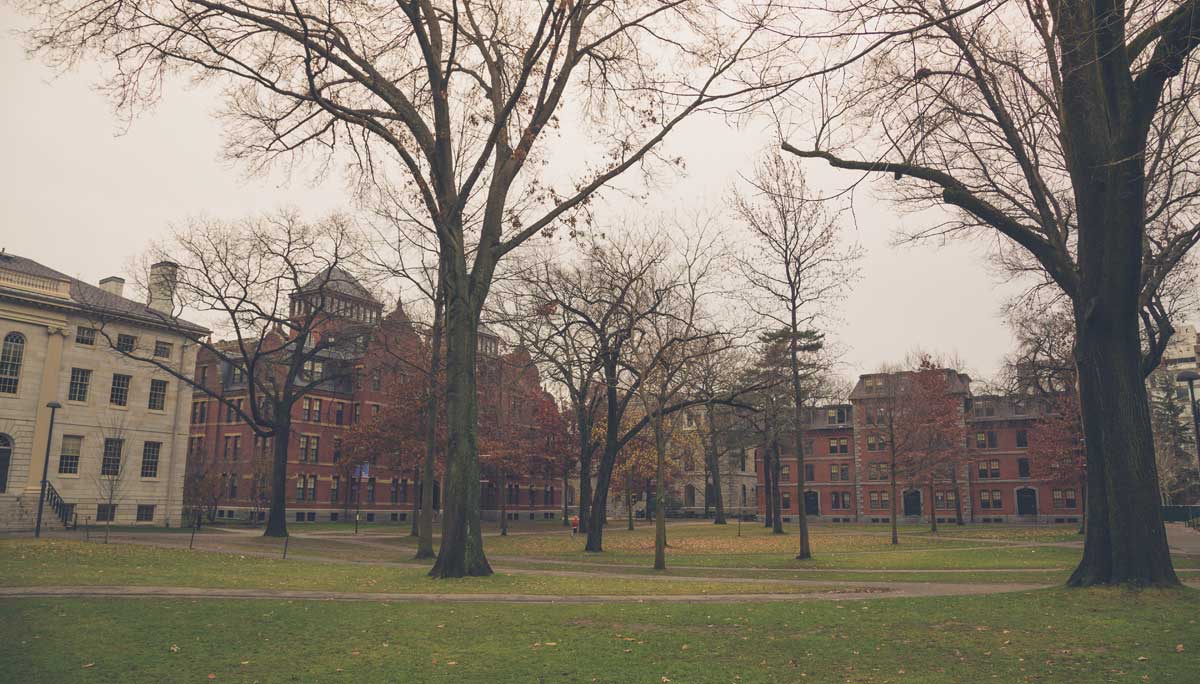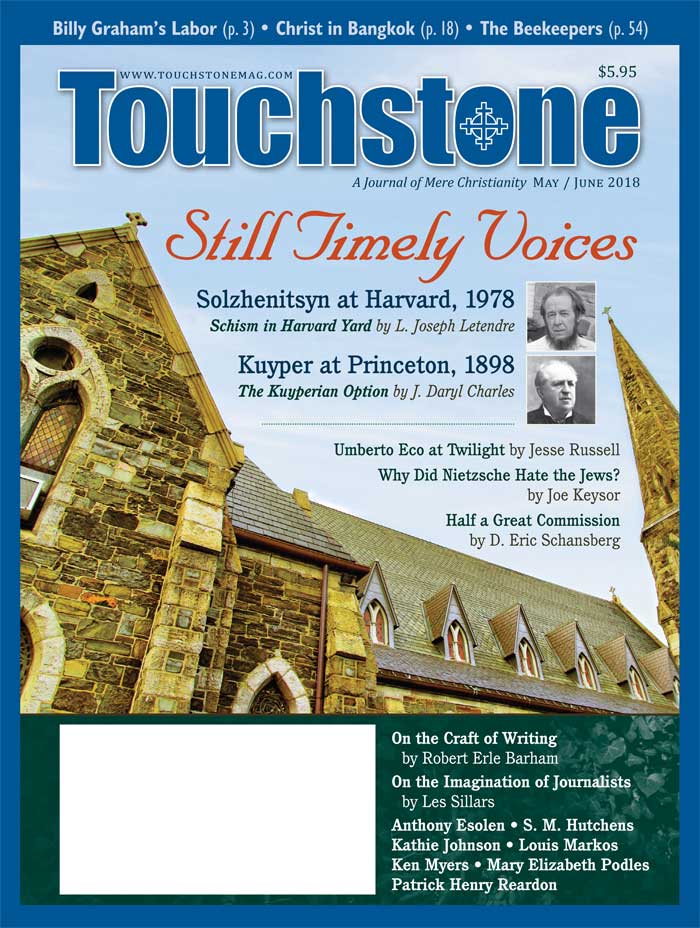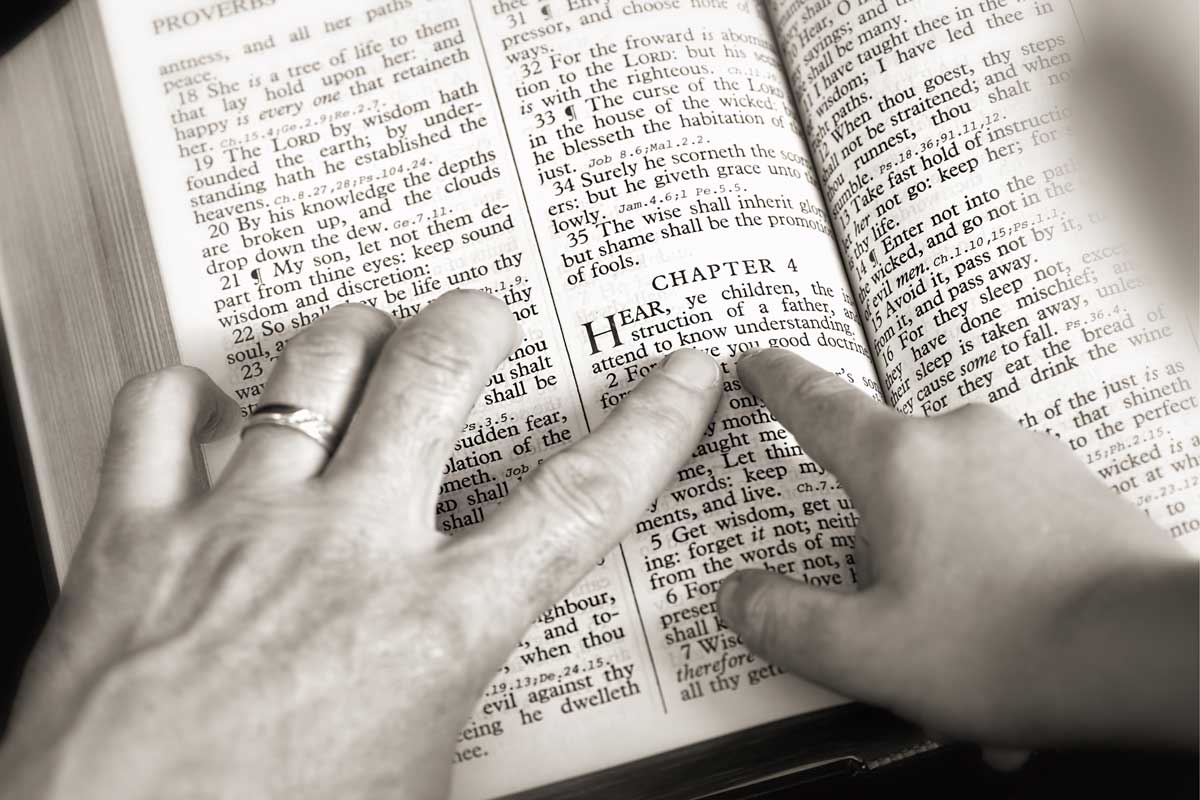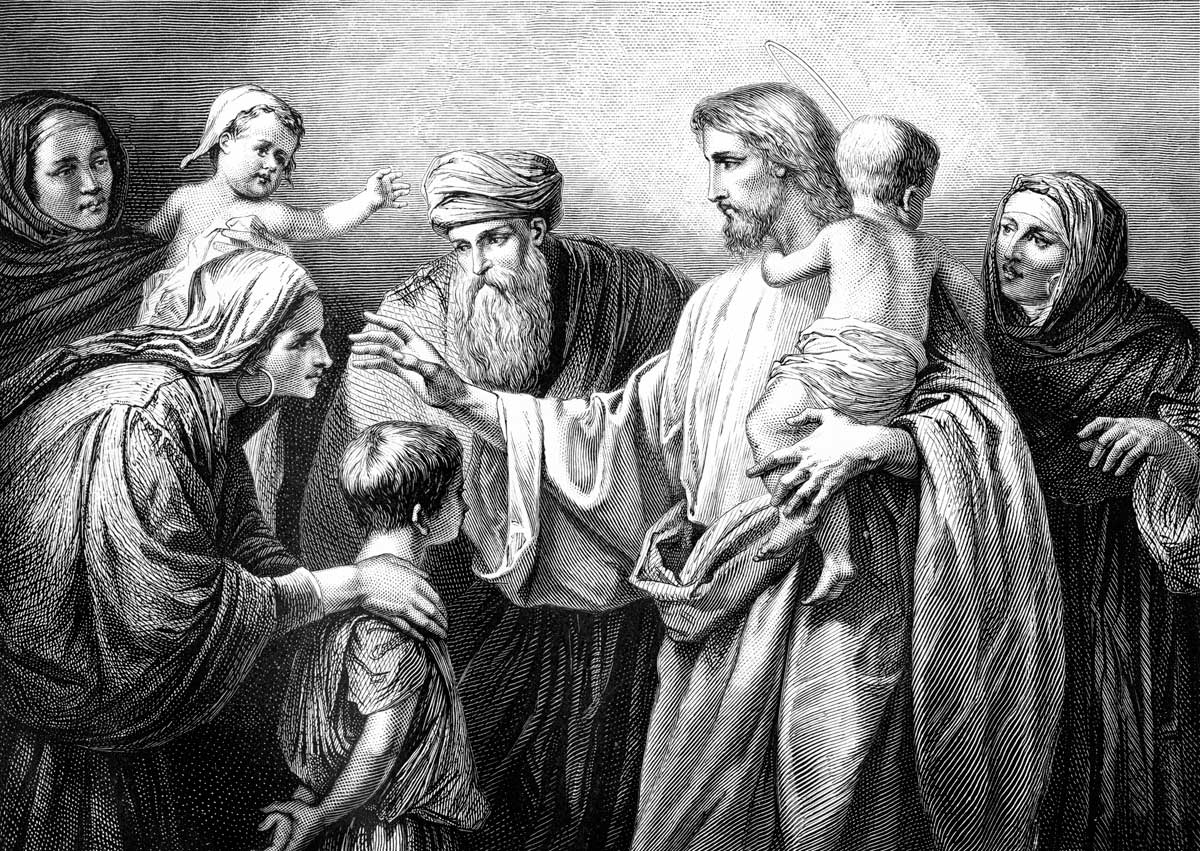Feature
Schism in Harvard Yard
Solzhenitsyn's Blunt Sermon Still Cuts Deep 40 Years Later
by L. Joseph Letendre
Forty years ago, on June 8, 1978, Alexander Solzhenitsyn was invited to leave his seclusion in Vermont, break his two-year silence, and speak to America. In 1974, the Nobel laureate had been exiled from the Soviet Union for the crime of publishing The Gulag Archipelago, his relentless documenting of the horrors of the Soviet prison camp system. Now he would be delivering the commencement address at Harvard University.
As soon as his name was announced, a few days before the event, the graduation ceremony became the focus of national attention. People were eager to hear the words of the most famous spokesman for human rights and political liberty. They swelled the Harvard Yard audience on that rainy Saturday afternoon to a record-setting 22,000. Moreover, the speech was broadcast live on PBS. It was the largest audience the writer had ever faced—or would ever face again.
The address, eventually titled A World Split Apart, was delivered in Russian and simultaneously translated into English. It was, as is clear when one watches it on YouTube, a difficult talk to digest in one hearing. Nevertheless, when the hour-long speech was finished, the author received a standing ovation. But after the press absorbed the meaning and import of what Solzhenitsyn had said, the backlash began.
Within days, a deluge of editorials appeared rejecting Solzhenitsyn's message and attacking, or at best dismissing, the author himself. His words were derided as little more than a tirade delivered by a bitter, homesick crank. Before that weekend, Solzhenitsyn had been one of the world's most famous and admired authors: a prophetic figure whose infrequent speeches were eagerly reported on by the news outlets. After the Harvard address, he would be all but ignored by intellectuals, critics, and policy-makers. With few exceptions, until his death in Russia in 2008, if his existence and ongoing work were noted at all, it was in a tone of disparagement. Why?
This essay provides some possible answers to that question, but it also considers anew what Solzhenitsyn said then and what his words might say to our own time.
The Address
After brief introductory remarks, Solzhenitsyn began with a consideration of the Cold War division of the world between the capitalistic democracies and the Communist bloc. This, along with its eventual title, A World Split Apart, prompted Michael Scammell, Solzhenitsyn's English-language biographer, to summarize the entire address as "an impassioned plea against schism of any kind, an appeal for unity." After summarizing the dangerous rift between East and West, the author turned his attention to his new home. "A measure of bitter truth is included in my speech today," he warned his listeners, "but I offer it as a friend, not as an adversary."
The first bitter truth Solzhenitsyn offered was that the West was on a dangerous decline. Even more provocative, perhaps, were the symptoms of decline he listed: cowardice, materialism, legalism, and unrestrained freedom. He announced that a
decline in courage may be the most striking feature that an outside observer notices in the West today. The Western world has lost its civic courage, both as a whole and separately, in each country, in each government, in each political party. . . . There remain many courageous individuals, but they have no determining influence on public life.
Elsewhere in the speech, he noted the West's "loss of will power," "psychological weakness," and "spiritual exhaustion." Two things in particular prompted his diagnosis.
One was the 1975 abandonment of South Vietnam by the Ford administration, which he denounced as "a cruel mistake" wrought by "short-sighted politicians who signed the hasty Vietnam capitulation." After mentioning Cambodia's "Killing Fields," which was happening as he spoke and which he saw as one result of the United States' defeat in Vietnam, he castigated "members of the U.S. antiwar movement [who] became accomplices in the betrayal of Far Eastern nations, in the genocide and the suffering today imposed on thirty million people there."
The other issue Solzhenitsyn criticized was detente, which had been the Soviet policy of three U.S. administrations. "Western thinking has become conservative," he complained. "The world situation must stay as it is at any cost; there must be no changes. This debilitating dream of a status quo is the symptom of a society that has ceased to develop." To the editorial writers at The New York Times, it seemed that Solzhenitsyn was calling for a return to the dangerous policies of the 1960s, those associated with MAD (Mutually Assured Destruction), the Cuban missile crisis, and the disastrous involvement in Vietnam. In an editorial published a few days later, the paper labeled Solzhenitsyn's anti-Communism as an "obsession . . . we are happy to forego in this nation's leaders."
Solzhenitsyn identified one cause of the West's loss of courage as its materialism. Acknowledging that "the majority of the people have been granted well-being to an extent their fathers and grandfathers couldn't even dream about," he worried that Westerners were being held hostage by their wealth. "Who should now renounce all this, why and for the sake of what should one risk one's precious life in defense of the common good and particularly in the nebulous case when the security of one's nation must be defended in an as yet distant land?" he wondered.
Legalism
Perhaps the most surprising element in Solzhenitsyn's Harvard address was his attack on Western society's "legalistic life." It sounded strange that he would observe that "legalistic thinking induces paralysis: it prevents one from seeing the scale and meaning of events." In America, the law was ostensibly meant to protect the rights of its citizens; in the Soviet Union, it was the opposite case. In several detailed chapters in the first volume of The Gulag Archipelago, Solzhenitsyn had traced the development of the Soviet legal system, paying particular attention to the Soviet Penal Code's infamous Article 58, which dealt with suspected counter-revolutionaries and enemies of the workers.
It was under this provision that Solzhenitsyn himself had been sentenced in 1945. While serving at the front, in a private letter to a classmate, he had criticized Stalin's conduct of World War II. Thus, at the end of the war, he became one of the estimated 2.5 million zeks who then populated the Soviet Union's labor camps. After completing his eight-year sentence, he endured a second imprisonment as an internal exile for nearly four years before being permitted to return to the European part of the Soviet Union. All of this had been done legally.
Solzhenitsyn accused the West of confusing what was legal with what was right, and of seeing the law as a sufficient replacement for morality and virtue.
Every conflict is solved according to the letter of the law, and this is considered to be the ultimate solution. If one is right from a legal point of view, nothing more is required, nobody may mention that one could still not be entirely right, and urge self-restraint or a renunciation of these rights, call for self-sacrifice and selfless risk: this would simply sound absurd.
Solzhenitsyn was familiar with Chinese philosophy, and perhaps he had in mind the descending ethical scale in the Tao Te Ching. One of its chapters could be paraphrased thus: "When morality is lost, the law appears." In a move that would earn approval today, Solzhenitsyn alluded to the legal but nonetheless immoral actions of oil companies and food manufacturers.
Legalism, for Solzhenitsyn, supported and encouraged the "destructive and irresponsible freedom" he saw running rampant in the West. A society depending solely on legality to defend its civic life would "have scarce defense against the abyss of human decadence, for example, against the misuse of liberty for moral violence against young people, such as motion pictures full of pornography, crime, and horror."
Ultimately, Solzhenitsyn concluded, "life organized legalistically has thus shown its inability to defend itself against the corrosion of evil."
The Media
In retrospect, Solzhenitsyn's lengthy diatribe against the Western news media seems tactically reckless. It was this media, after all, that would transmit and interpret his words to the wider American public. Moreover, Solzhenitsyn dared to criticize a press that was still in the heady awareness of its newfound power. Ten years earlier, it had been able to rebrand America's victory in the 1968 Tet offensive as a defeat. Later in that annus horribilis that was 1968, Walter Cronkite declared that he could not see how the Vietnam War could be won, and lesser journalists dug into the thesaurus and extracted the word "quagmire." Four years before Solzhenitsyn spoke at Harvard, two news reporters had proven instrumental in bringing down a sitting president. News organizations and journalists had gone from being reporters and commentators to being power brokers and players.
With justification, the press counted Solzhenitsyn as one of their own. Besides his novels and short stories, what had catapulted Solzhenitsyn to international fame was his fight against Soviet censorship. In 1967 the already-beleaguered author drafted an open letter to the Fourth Writers' Congress in Moscow calling for the abolishment of censorship and for the Soviet Union to defend members of the congress from "slander and unjust persecution." Before the letter was smuggled out for publication in the West, Solzhenitsyn typed, hand-addressed, and mailed 250 copies of his appeal to members of the Writers' Congress.
Furthermore, in writing and publishing The Gulag Archipelago, Solzhenitsyn accomplished history's greatest feat of investigative journalism. In four short years (1965–1968), while under incessant KGB surveillance, he was able to research, write, and smuggle out to the West a 400,000-word manuscript tracing the history and atrocities of the Soviet prison camp system. The writing involved heroic sacrifice on the author's part: he spent 16-hour workdays at a standing desk secretly composing his successive drafts in Estonia.
After the publication of Gulag, it was the Western press's daily reporting of the measures and threats taken against Solzhenitsyn that preserved his freedom and perhaps saved his life. So his hard criticism of that same press was seen not only as a betrayal, but also as profoundly ungrateful.
What exactly was the substance of Solzhenitsyn's criticism of the Western media? First, it was the press's irresponsibility and its immunity from accountability. "There is no true responsibility for distortion or disproportion," he charged. "Even if they have contributed to mistakes on a state level, do we know of any case of open regret voiced by the same journalist or the same newspaper? . . . A nation may be the worse for such a mistake, but the journalist always gets away with it." What Solzhenitsyn had in mind specifically was the publication of The Pentagon Papers and the harm that did to the U.S. war effort in Vietnam.
Solzhenitsyn went on to accuse the media of "hastiness and superficiality . . . more than anywhere else this is manifested in the press [where] in-depth analysis of a problem is anathema." Coming from the "totalitarian East, with its rigorously unified press," he was surprised by the lack of diversity of thought and ideas in the West: "newspapers mostly transmit in a forceful and emphatic way those opinions which do not too openly contradict their own and the general trend"; their readers remain unexposed to competing ideas.
Solzhenitsyn included academia in this critique: "Your scholars are free in the legal sense," he remarked, "but they are hemmed in by the idols of the prevailing fad."
Secular Humanism
Solzhenitsyn's final criticism struck like a dagger-thrust to the heart. The root of the problem, as he saw it, was "the prevailing Western view of the world, which was born in the Renaissance and has found political expression since the Age of Enlightenment." He termed this view "anthropocentricity."
The emergence of this view began with the Renaissance's rejection of the Middle Ages' spurning of man's physical nature. It proceeded down the years with a tightening focus on human physical flourishing and the increase of material prosperity—"as if human life did not have any higher meaning." This finally led to "a total emancipation from the moral heritage of the Christian centuries with their great reserves of mercy and sacrifice." Recalling the genocidal history of the twentieth century, Solzhenitsyn lamented that its technological wonders, even the landing of men on the moon, "do not redeem the twentieth century's moral poverty."
Ruined Expectations
Naively, it now seems, Solzhenitsyn was taken aback by the hostile response to his words. In an interview published two years later, he admitted, "I had not expected [the press] to be so unreceptive to criticism. I was called a fanatic, a man possessed, a mind split apart, a cynic, a vindictive warmonger. I was even simply told to 'get out of the country.'"
This response seems to have embittered him. When, in 1980, the Ethics and Public Policy Center in Washington, D.C., sought to publish a volume containing the text of the address along with a compendium of "early responses and later reflections," Solzhenitsyn and his publisher warned that publishing any translation of his speech would be a copyright violation. Ultimately, it took an appeal to the U.S. District Court claiming that the restriction violated the "fair use" stipulations of copyright law before Solzhenitsyn's publishers would permit the use of their translation.
Part of the problem was that Solzhenitsyn had disappointed his audience's expectations.
It was a commencement speech: a fact to which Solzhenitsyn gave only passing acknowledgment. In a speech on another such occasion (recently published in Scalia Speaks), the late Supreme Court Justice Antonin Scalia wryly referred to the practice of graduates issuing bingo cards to their classmates before the ceremony. Each square contained a commencement speech cliché. The graduates were to mark off the squares as each cliché was offered by the speaker. The first to reach five in a row would shout "Bingo!" If Harvard's graduating class of 1978 had been so supplied, the cards would have been left blank.
Not unreasonably, Solzhenitsyn's audience expected someone who would be not only congratulatory, but also grateful for and admiring of his new home in exile. Solzhenitsyn was none of these things.
In an academic setting where the reality of objective truth, or at least its knowability, was doubted or denied, Solzhenitsyn offered his "measure of bitter truth."
Standing four miles from Boston's Beacon Hill, the highest point in the city founded by the Puritans to be a light to the world, he told his listeners that he did not consider America a viable model for his own nation. (One imagines members of the audience pointing to themselves with stunned expressions, saying, "Us!? Not a model?")
Renowned for his courageous battle against Soviet censorship, he wanted American news media to be held accountable (he did not say by whom). Himself a victim and chronicler of the Soviet court and penal system, he excoriated American legalism. In one of the bastions of secular humanism, he disdained the fruits of the Renaissance and Enlightenment and seemed to exalt faith over reason.
His fears about crippling and enervating materialism fell on the deaf ears of students and parents who sought and welcomed a Harvard education as "preparing them and summoning them toward physical bloom, happiness, the possession of material goods, money, and leisure, toward an almost unlimited freedom in the choice of pleasures" that Solzhenitsyn deemed inadequate to leading a worthwhile life.
It is no surprise that a barrage of criticism began almost as soon as the applause had died down and the import of his words began to settle in. Numerous editorials decided he had, at best, misunderstood America and, at worst, rudely insulted us.
Weak Point
One of the major weaknesses of the Harvard address is that here, perhaps for the first time, Solzhenitsyn was working outside the area where his greatest strengths as a writer lay: his ability to mine his own experiences to craft a narrative that transcended autobiographical specifics to address themes universal to the human condition. It was this ability to speak and reflect as a witness that gave power to One Day in the Life of Ivan Denisovich, The First Circle, and Cancer Ward—the novels that earned him international renown and the Nobel Prize for literature.
With The Gulag Archipelago, Solzhenitsyn's capacity for scholarly research was revealed. In the brief period of official favor following the Khrushchev-backed publication of Ivan Denisovich, Solzhenitsyn was granted access to documents and library stacks denied to the average Soviet citizen. Seizing the opportunity, he was able to document the development of the Soviet system of labor camps while simultaneously researching the Russian defeat at Tannenberg for August 1914, his next novel. This latter research project was genuine, but it also provided a plausible cover for his work on Gulag.
Parts of Gulag are autobiographical reflections on Solzhenitsyn's own experience in the camps; others incorporate the accounts of over two hundred survivors of the gulag who were either clandestinely interviewed by the author or had somehow managed to smuggle their memoirs to him. Much of the power of Solzhenitsyn's self-defined "experiment in literary investigation" came from his ability to combine historical research with personal narrative.
In his later work, Solzhenitsyn would leave behind his own and others' lived experiences. One weakness of his magnum opus, The Red Wheel—a monumental history of the Russian Revolution—is that, in it, the encyclopedic researcher, historian, and documentarian has dwarfed the artistic narrator.
The Real Audience
Another issue is the question of whom exactly Solzhenitsyn was addressing that day. Near the beginning of the speech, he acknowledged,
If I were today addressing an audience in my country . . . I would have concentrated on the calamities of the East. But since my forced exile in the West has now lasted four years and since my audience is a Western one, I think it may be of greater interest to concentrate on certain aspects of the contemporary West, such as I see them.
Taking him at his word, Michael Scammell considers the address as amounting to Solzhenitsyn's "Speech to America."
But Olga Andreyev Carlisle, one of the respondents anthologized in Solzhenitsyn at Harvard and someone who had helped shepherd Solzhenitsyn's works into publication in America, thought that Solzhenitsyn "was really speaking to the Soviet leaders and to the Russian people. He wanted them to know that he had not been seduced by the false values of the West. His soul is still Russian." If Carlisle is correct, this clears up some difficulties.
From the first hours of his exile, Solzhenitsyn maintained an unfaltering conviction that the Soviet system would fail, that his books would be published in his homeland, and that he and his family would return to Russia. All of which, of course, came true. Even from exile, Solzhenitsyn anticipated a future role in shaping the new Russia that would have to be rebuilt from the rubble of a defunct Soviet Union.
In such case, his declaration that "I could not recommend your society as an ideal for the transformation of ours" was not intended as a gratuitous insult to his American audience but as an admonition to his real audience. Speaking in his familiar role of witness, though not as narrator, he was warning against the path of legalism, materialism, and secular humanism that America was following.
Some have criticized the vague, utilitarian nature of the religion that Solzhenitsyn seems to recommend in his speech: a religion needed to bolster—or in America's case, restore—a moral society. Carlisle implies that Solzhenitsyn's Russian audience would understand that he meant nothing other than the Russian expression of Orthodox Christianity.
And Today?
Does Solzhenitsyn's 40-year-old peroration still have value and relevance? The Cold War, which provided the context for Solzhenitsyn's Harvard address, ended nearly 30 years ago. Even at the time of its delivery, A World Split Apart offered no new insights. Warnings about the decline of the West have been familiar fare at least since Oswald Spengler coined the phrase in 1918. Likewise, the dangers of materialism and greed are perennial themes.
Solzhenitsyn's assertion that "only moral criteria can help the West against communism's well-planned world strategy" has been exonerated by events. A few months after his speech, John Paul II was elected pope, and a year later his words and moral leadership inspired the birth of the Solidarity movement in Poland. A few years after Solzhenitsyn's speech, President Ronald Reagan would denounce the Soviet Union as an "evil empire" and then, invoking the values of peace and freedom, famously urge Soviet President Gorbachev to "open this gate . . . tear down this wall." And just over a decade after Solzhenitsyn spoke in Harvard Yard, the domino collapse of the Soviet Union would begin in Prague under the leadership of Vaclav Havel, like Solzhenitsyn a writer, a former prisoner of conscience, and an outspoken defender of human rights. Moral criteria had, indeed, played a key role in ending the Cold War.
Solzhenitsyn's diagnosis of America's "decline in courage" and "loss of will" seems to have missed the mark. What he called "spiritual exhaustion" was mere exhaustion. In the spring of 1978, Americans hadn't yet really recovered from the political and civic turmoil of the 1960s, the defeat in Vietnam, and Watergate. They were still in the midst of a massive cultural shift, as the baby-boomers reached adulthood if not maturity. Surely, cowardice is not what other nations detect in America today. Despite President Obama's attempt to "re-brand" American foreign policy, when other countries look at the United States, they still see a reckless and roughshod country—something like a gun-toting, Stetson-wearing cowboy at full gallop.
Solzhenitsyn's words to and, more importantly, subsequent treatment by the press are more instructive. His statement that "a selection dictated by fashion and the need to accommodate mass standards frequently prevents the most independent-minded persons from contributing to public life" presaged the sentence the press meted out to him. His observation that "the press has become the greatest power within Western countries, exceeding that of the legislature, the executive, and the judiciary," should be more alarming today: during the 2016 presidential election, major news organizations abandoned any claim to objectivity or impartiality and openly stated their intent to prevent the election of one of the nominees. Their shock and rage at their failure to do so has not abated.
Solzhenitsyn's passing remark (one wishes he had dwelt more on this) that universities were becoming as much a slave to intellectual/political fashion as the press had become has only grown more pertinent. Classical Christian morality is rejected even in ostensibly Catholic universities. Nowhere in America are the First Amendment rights of free speech and free exercise of one's faith more under attack than on college campuses.
Today, when many Americans feel like they are standing in the middle of a frozen pond watching the ice cracking beneath their feet, what is most enduring is the speech's titular concern about the fragmenting of societies and nations. As noted above, the official translation of Solzhenitsyn's speech was published by Harper and Row under the title A World Split Apart. The Russian word translated as "split apart" was carefully chosen by Solzhenitsyn. It is raskolnik—a word fraught with emotional and religious overtones and better translated as "schism." It alludes to the Great Schism that sealed the division between the Western and Eastern Church. But more, it recalls the painful split that tore apart the Russian Orthodox Church in the late seventeenth century. A group, now referred to as the "Old Believers" (in Russian, raskolniki, "schismatics"), refused to accept changes in church practices introduced by the patriarch of Moscow. With the help of the government, the Old Believers were violently suppressed. The leader of the group, Archpriest Avvakum Petrov, was imprisoned north of the Arctic Circle and confined to a pit for fourteen years before he was finally burned at the stake. Solzhenitsyn's deliberate choice of the word raskolnik signaled the religious perspective from which he viewed the fragmented and fragmenting world; it also hints at the profound feelings that lay beneath his words that afternoon.
The opening of Solzhenitsyn's speech suggested he would be discussing the Cold War and the cultural and political split between East and West. But it soon became clear that he had another schism in mind: two rival and competing views of human nature. "This is the essence of the crisis: the split in the world is less terrifying than the similarity of the disease afflicting its main sections." With courage and insight, Solzhenitsyn made it clear where the fault line lay and on which side of it he stood.
On one side of the divide were those who posited the autonomous human being standing as "the measure of all things on earth." On the other side stood Solzhenitsyn and those like him, who saw "imperfect man, never free of pride, self-interest, envy, vanity, and dozens of other defects."
On one side were those who held a utopian anthropology: the view that the human species was ultimately perfectible, and that the goal of human happiness would be attained extrinsically by changes to man's social, political, and economic milieu. From the other side, Solzhenitsyn reminded his hearers of the deep human tragedy:
If, as claimed by humanism, man were born only to be happy, he would not be born to die. Since his body is doomed to death, his task on earth evidently must be more spiritual: not a total engrossment in everyday life, not the search for the best ways to obtain material goods and then their carefree consumption. It has to be a fulfillment of a permanent, earnest duty so that one's life journey may become above all an experience of moral growth: to leave life a better human being than one started it.
It does not take a 40-year vantage point to see that Solzhenitsyn's Harvard address was more than a warning and other than a screed; that it was more on the order of a sermon; that, at its deepest, it was a call to conversion.
L. Joseph Letendre is the author of the recently published primer When You Pray: A Practical Guide to an Orthodox Life of Prayer. His writing has also appeared in The Reformation and Revival Journal and St. Vladimir's Theological Quarterly. He holds an M.Div. from St. Vladimir's Seminary and is a parishioner at All Saints Antiochian Orthodox Church in Chicago.
subscription options
Order
Print/Online Subscription

Get six issues (one year) of Touchstone PLUS full online access including pdf downloads for only $39.95. That's only $3.34 per month!
Order
Online Only
Subscription

Get a one-year full-access subscription to the Touchstone online archives for only $19.95. That's only $1.66 per month!
bulk subscriptions
Order Touchstone subscriptions in bulk and save $10 per sub! Each subscription includes 6 issues of Touchstone plus full online access to touchstonemag.com—including archives, videos, and pdf downloads of recent issues for only $29.95 each! Great for churches or study groups.
Transactions will be processed on a secure server.
more on education from the online archives
more from the online archives
calling all readers
Please Donate
"There are magazines worth reading but few worth saving . . . Touchstone is just such a magazine."
—Alice von Hildebrand
"Here we do not concede one square millimeter of territory to falsehood, folly, contemporary sentimentality, or fashion. We speak the truth, and let God be our judge. . . . Touchstone is the one committedly Christian conservative journal."
—Anthony Esolen, Touchstone senior editor













